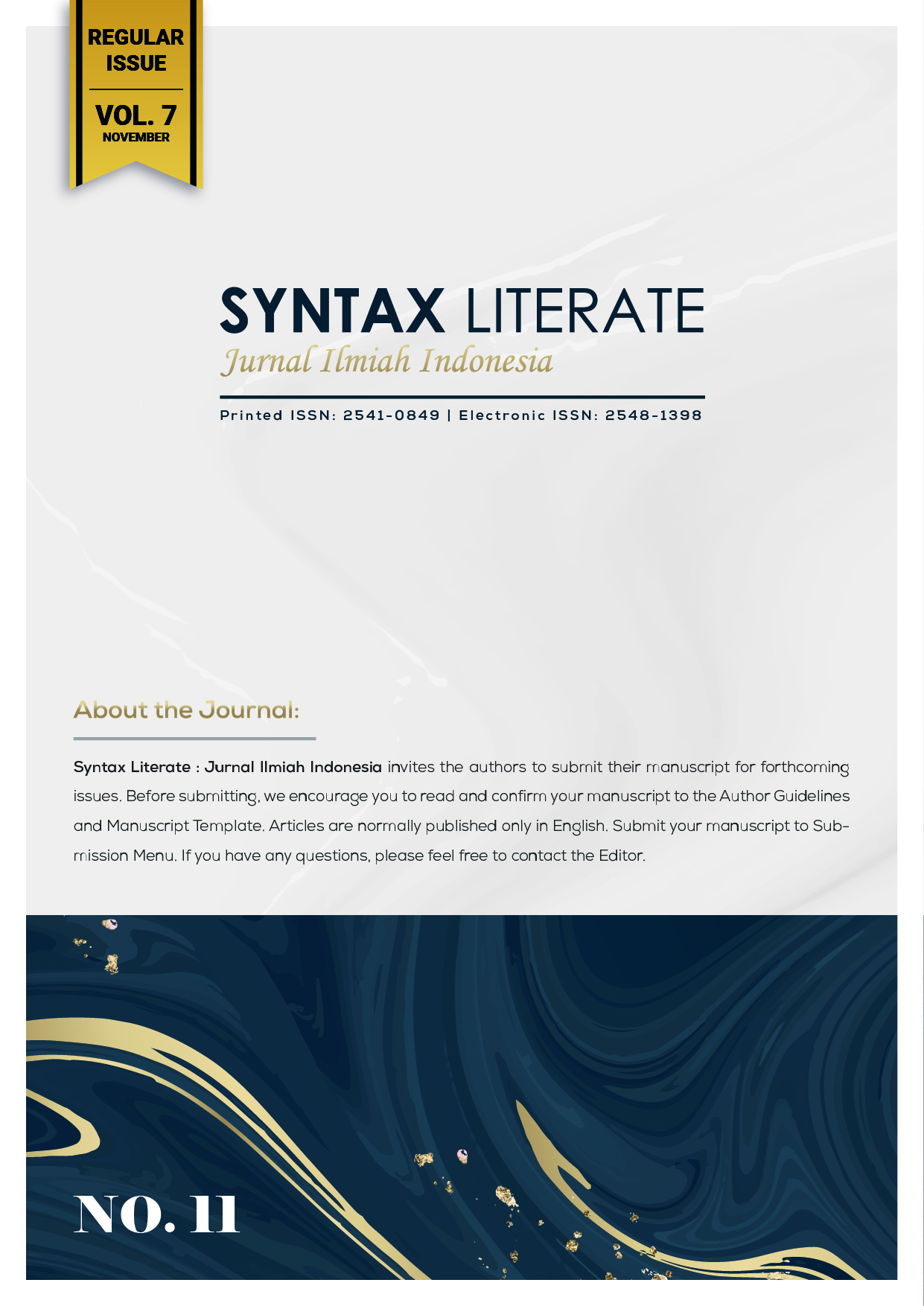The Effect Of Digital Leadership on Motivation, Engagement, And Employee Performance Using Social Network Analysis Method: Evidence From The Largest Highway Tollroad in Indonesia (Infrastructure Company)
Abstract
The existence of the Covid-19 pandemic has an impact on accelerating digitalization or digital transformation. This impact forces the use of technology more massively and becomes a big challenge for several companies. The study will be conducted at one of Indonesia's largest toll road companies, which was affected by digital transformation. Companies that adopt digital leadership are considered to perform better. Leadership practices have evolved to adapt to this changing landscape with the increasing adoption of digital technologies in the workplace. This study utilizes SNA to investigate the relationship between digital leadership and employee motivation, engagement, and performance. The findings reveal that digital leadership positively influences employee motivation and engagement, improving employee performance. Specifically, leaders who demonstrate effective digital leadership behaviours such as leveraging technology, promoting digital collaboration, and fostering a digital culture are more likely to have motivated, engaged, and high-performing employees. These findings contribute to understanding how digital leadership impacts employee outcomes in companies. The implications of this research suggest that organizations should invest in developing digital leadership capabilities among their leaders to enhance employee motivation, engagement, and performance in the digital era. This study also highlights the importance of leveraging SNA as a valuable research method to examine leadership dynamics in the digital workplace.
Downloads
References
Barchiesi, M. A., & Colladon, A. F. (2021). Big data and big values: When companies need to rethink themselves. Journal of Business Research, 129, 714–722.
Berné-MartÃnez, J. M., Arnal-Pastor, M., & Llopis-Amorós, M.-P. (2021). Reacting to the paradigm shift: QCA study of the factors shaping innovation in publishing, information services, advertising and market research activities in the European Union. Technological Forecasting and Social Change, 162, 120340.
Cabras, I., & Mount, M. P. (2017). How third places foster and shape community cohesion, economic development and social capital: The case of pubs in rural Ireland. Journal of Rural Studies, 55, 71–82.
Collignon, P. C., Conly, J. M., Andremont, A., McEwen, S. A., Aidara-Kane, A., World Health Organization Advisory Group, B. M. on I. S. of A. R. (WHO-A., Agerso, Y., Andremont, A., Collignon, P., & Conly, J. (2016). World Health Organization ranking of antimicrobials according to their importance in human medicine: a critical step for developing risk management strategies to control antimicrobial resistance from food animal production. Clinical Infectious Diseases, 63(8), 1087–1093.
Coskun-Setirek, A., & Tanrikulu, Z. (2021). Digital innovations-driven business model regeneration: A process model. Technology in Society, 64, 101461.
DuPre, N. C., Karimi, S., Zhang, C. H., Blair, L., Gupta, A., Alharbi, L. M. A., Alluhibi, M., Mitra, R., McKinney, W. P., & Little, B. (2021). County-level demographic, social, economic, and lifestyle correlates of COVID-19 infection and death trajectories during the first wave of the pandemic in the United States. Science of the Total Environment, 786, 147495.
Gistituati, N. (2020). Analysis of Factors Affecting Teachers’ Productivity. 2nd International Conference Innovation in Education (ICoIE 2020), 395–399.
Hasibuan, M. S. P. (2012). Manajemen Sumber Daya manusia, cetakan keenam belas. Jakarta: PT. Bumi Aksara.
Huang, S., & Czech, M. P. (2007). The GLUT4 glucose transporter. Cell Metabolism, 5(4), 237–252.
Kane, G. C., Palmer, D., Phillips, A. N., Kiron, D., & Buckley, N. (2015). Strategy, not technology, drives digital transformation. MIT Sloan Management Review.
Madison, G. B. (1981). The phenomenology of Merleau-Ponty: A search for the limits of consciousness.
Mangkunegara, A. A. A. P. (2011). Manajemen sumber daya manusia perusahaan.
Muthike, J. (2016). Influence of leadership styles on timely completion of road construction projects in Kenya: a case of Norken ltd, Nairobi, Kenya. University of Nairobi.
Palmié, M., Wincent, J., Parida, V., & Caglar, U. (2020). The evolution of the financial technology ecosystem: An introduction and agenda for future research on disruptive innovations in ecosystems. Technological Forecasting and Social Change, 151, 119779.
Pasolong, H. (2010). Public Administration Theory. Alfabeta, Bandung.
Robinson, J. A. (2006). Economic development and democracy. Annu. Rev. Polit. Sci., 9, 503–527.
Rudito, P., & Sinaga, M. F. N. (2017). Digital mastery, Membangun kepemimpinan digital untuk memenangkan era disrupsi. Gramedia Pustaka Utama.
Schaufeli, W. B., Taris, T. W., Le Blanc, P., Peeters, M., Bakker, A. B., & De Jonge, J. (2001). Maakt arbeid gezond. Op Zoek Naar de Bevlogen Werknemer [Does Work Make Happy, 2001, 422–428.
Sheninger, E. (2019). Digital Leadership. International Center for Leadership in Education.
Sueur, C., Petit, O., De Marco, A., Jacobs, A. T., Watanabe, K., & Thierry, B. (2011). A comparative network analysis of social style in macaques. Animal Behaviour, 82(4), 845–852.
Trivellas, P., Reklitis, P., & Platis, C. (2013). The effect of job related stress on employees’ satisfaction: A survey in health care. Procedia-Social and Behavioral Sciences, 73, 718–726.
Westerman, G., Bonnet, D., & McAfee, A. (2014). The nine elements of digital transformation. MIT Sloan Management Review, 55(3), 1–6.
Zeike, S., Bradbury, K., Lindert, L., & Pfaff, H. (2019). Digital leadership skills and associations with psychological well-being. International Journal of Environmental Research and Public Health, 16(14), 2628.
Copyright (c) 2022 Rr. Hernitasari A, Mone S. Andrias

This work is licensed under a Creative Commons Attribution-ShareAlike 4.0 International License.











